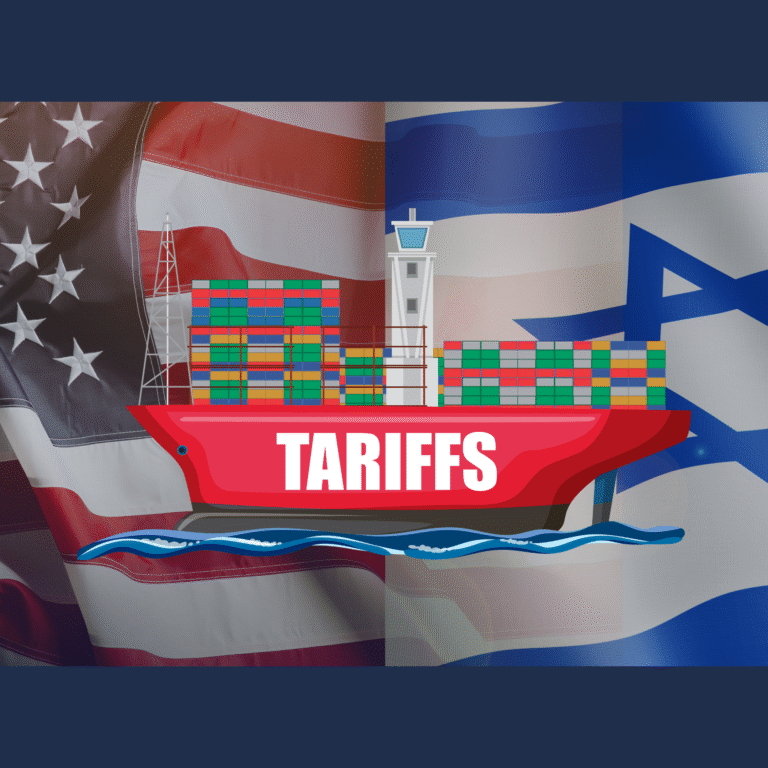

We recently hosted a webinar on Estate Planning for the US Citizen living in Israel, with special guest speakers Mirit Hoffman, esq. and Osher Haleli, esq. The webinar shed some light on the complexities for US citizens living in Israel as they navigate the estate planning process across international borders. In this blog post, we will delve into the critical aspects and roadblocks of such planning.
But first, we’ve written these blogs about moving to and living in Israel which you may enjoy.
What to do when you get kicked out of your US brokerage account
Can one use a US Power of Attorney in Israel, (and vice versa)?
Checklist for moving to Israel
Financial planning for US citizens living abroad
Selling a house in Israel as a US citizen
Why US Expats should look before they leap into a Roth 401k
Compliance with reporting of foreign assets: tips for US expats to avoid stress
What expats need to know about Brokerage Accounts for non-US residents
And now let’s get into the blog!
#1 Understanding the Israeli Will
A fundamental element of Israeli estate planning is the creation of a will. In Israel, there are four accepted types of wills, each with its own requirements:
- Handwritten Will: This type of will must be signed and dated on each page, not be double-sided, and preferably written in blue ink. Each spouse must prepare their own handwritten will.
- Typed Out Will: This is the more common form of a will in Israel and requires two witnesses (who must not be family members) to sign it.
- Will in Front of Authority: In this case, the will is verbally stated in front of an authority who then transcribes it. Both the individual and the authority must sign it.
- Deathbed Will: This type is uncommon and is typically used when someone believes they are dying. It requires two witnesses, who can be family members, to write and file the will. It becomes void after one month if the individual does not pass away.
In the absence of a will, Israeli inheritance law applies. Generally, half the assets are inherited by the spouse and half by the children. This can lead to complications, especially when assets such as jointly owned apartments are involved. Consent issues may arise when trying to sell such assets.
The Longevity Clause
Unlike in the US, the transfer of a joint account to the surviving account owners is not an automatic process in Israel. For those with joint bank accounts in Israel, signing a “longevity clause” is crucial. This clause allows the surviving spouse to continue using the account for ongoing expenses until probate is shown at the bank. It prevents the bank from freezing the account entirely upon one holder’s death. It’s important to note that a longevity clause is not a substitute for a will.
#2 Enduring Power of Attorney: Planning for Incompetency
As life expectancy increases, we believe planning is essential for a time when one may no longer be competent to manage one’s own affairs. In such cases, a regular Power of Attorney (POA) can act on the individual’s behalf only as long as the person is mentally capable of handling his own affairs. Once incapable, the regular POA is canceled. While guardianship appointed through the court is also an option, it’s a lengthy process involving family members being appointed through the court after being assessed by a social worker.
An Enduring Power of Attorney may be a more efficient solution, allowing the individual to appoint someone in advance, maintaining control of their elder care and avoiding state intervention. Activation is simpler than applying for guardianship, since it does not require the involvement of the court and is also quicker, usually between 7-10 days. Guardianship is a longer process. An enduring Power of Attorney empowers you in all choices in your elder care, as it is tailor-made by you for your own needs.
#3 Medical Directive: Ensuring Your Wishes are Honored
A Medical Directive is crucial for situations where one can no longer make one’s own medical decisions and has been diagnosed by the doctor as “terminally ill” thus having only six months to live regardless of any medical intervention. Medical Directives are directly downloaded from the Ministry of Health’s website. They are valid for five years and can be extended. Having copies readily available is important, as it may take time for doctors to access the system.
Complexities for the Global Families
Being a citizen of more the one country leads to complexities, particularly when it comes to estate planning. Estate planning for a global family can be more expensive due to these intricacies. Examples of global families includes:
- US citizens residing outside the US (remember, the US taxes globally).
- An American with heirs residing outside the US.
- An American married to a non-US citizen, or having non-US citizen children or grandchildren.
- Green card holders.
- Having assets located in 2 or more countries.
Overcoming International Hurdles
Our focus here is US citizens living in Israel. Certain challenges arise in estate and elder-care planning involving assets in both Israel and the US.
Powers of Attorney do not cross borders. In the case of incompetency of a US citizen living in Israel, one would also need a US Durable Power of Attorney to access US assets in addition to an Israeli one. An example of this is someone who lives in Israel, and is supported financially by income from US domiciled investment accounts or pensions.
In the case of a US citizen passing away in Israel, Israeli probate orders may be sufficient for access to assets in the US. However, unless one takes preemptive steps (see below), it is a long and arduous process to pass on certain US assets to one’s heirs. One must obtain a Transfer Certificate from the US Internal Revenue Service (IRS), stating no further US transfer taxes are due.
This process takes at least two years from date of death, during which time assets are frozen, denying access, once the financial institutions have been notified. One may circumvent this step in one of two ways:
- Setting up a trust.
- Going through US probate (US citizens only)
If these are in place then an Israeli Will should be accepted as long as it is translated and notarized. For this reason, one does not usually need a second US will. Other things to be considered during estate planning are the differences in capital gains taxes between heirs residing in the US and Israel, and the often high price of “Gift Taxes”.
Israeli Estate Planning: General Implementation Issues to Keep in Mind
Several implementation issues may be considered during the process of estate planning in Israel for US citizens.. These include the translation and notarization of documents for US usage (Certificate of Death Abroad from the US consulate may help mitigate this), dealing with the Certificate of Transfer from the IRS, and the impact of varying tax regulations and asset values in different countries.
Summary:
Estate planning and elder-care planning for US Citizens living in Israel is quite the complex endeavor, owing to its global nature. Working with experienced legal and financial professionals who specialize in global estate and financial planning may help one navigate intricacies that international borders create. Understanding these complexities is crucial for ensuring your assets and wishes are protected.
We are expat financial advisors located in Israel and the US, serving expats globally.
If you are moving to Israel or another country and don’t know where to start when it comes to the financial side of things, or hold US or foreign assets and need help figuring out your retirement as an expat, please contact us.
Have questions about retiring in Israel? We’re having a series of webinars in 2024 on this topic. We’re also publishing blogs on this subject.
JOIN the newsletter list here to stay informed.
Disclaimer
Nardis Advisors LLC (“Nardis”) is a Registered Investment Advisory Firm regulated by the U.S Securities and Exchange Commission in accordance and compliance with applicable securities laws and regulations. Registration does not imply a certain level of skill or training. Nardis does not render or offer to render personalized investment advice through this medium. The information provided herein is for informational purposes only and does not constitute financial, investment or legal advice. Investment advice can only be rendered after delivery of the Firm’s disclosure statement (Form ADV Part 2) and execution of an investment advisory agreement between the client and Nardis.





